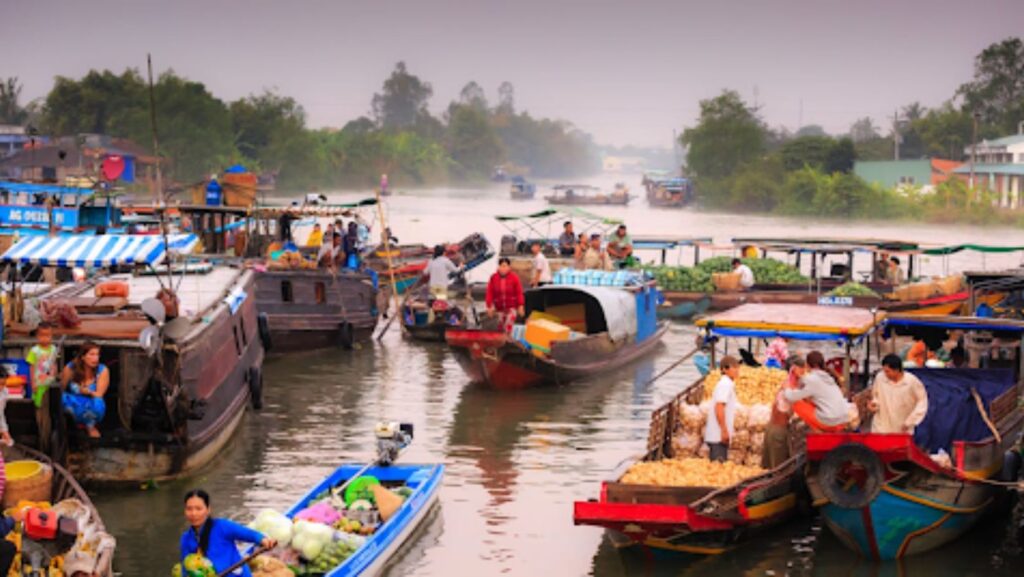Volunteer tourism, a growing movement in the travel industry, provides opportunities for travelers to engage in meaningful cultural exchanges while contributing to the welfare of local communities. Through these volunteer opportunities, travelers can immerse themselves in local cultures, gain new perspectives, and leave a lasting positive impact on the regions they visit. This unique form of travel not only benefits the volunteers but also plays a crucial role in addressing the challenges faced by local communities.
The Role of Volunteer Tourism in Local Communities
Volunteer tourism allows visitors to take on roles that support various community needs, from environmental conservation to education and healthcare. Unlike traditional tourism, where travelers often remain passive observers, volunteer tourism encourages active participation. Volunteers can assist in building infrastructure, teaching children, or helping communities recover from disasters. This direct involvement ensures that the contributions have a tangible, immediate effect, while also creating a deeper connection with the local culture and way of life.
This kind of engagement fosters trust between tourists and local communities. When volunteers interact with residents, learning about their customs and contributing to local initiatives, they often create lasting relationships. This trust can promote more sustainable development as local people become actively involved in shaping the future of their communities, much like the cooperative spirit seen in the mines online game, where players work together to achieve common goals.
Cultural Exchange Through Shared Experiences
One of the most profound aspects of volunteer tourism is the cultural exchange that occurs between volunteers and the local population. While volunteers come with their own perspectives, skills, and experiences, they are also exposed to the traditions, values, and practices of the communities they serve. This exchange is reciprocal; while locals share their culture with the volunteers, the volunteers also impart knowledge and new skills to the community.
These interactions foster mutual respect and understanding, breaking down stereotypes and misconceptions that might exist between different cultures. The knowledge gained on both sides can lead to broader social change, as it encourages cross-cultural dialogue and promotes a sense of global solidarity.
For example, volunteers working in education might teach new techniques or practices that local teachers can adapt, while also learning traditional teaching methods that might be more effective in the local context. This exchange is not one-sided; it’s an opportunity for both groups to grow and evolve through shared learning.
Volunteer Tourism as a Tool for Sustainable Development
Volunteer tourism offers unique opportunities to support sustainable development in ways that go beyond financial donations.

Many volunteer projects focus on environmental conservation, such as reforestation or wildlife protection, which can help safeguard natural resources for future generations. Through volunteer programs, travelers can actively participate in projects that protect biodiversity, manage waste, or educate local populations about sustainable practices.
Additionally, volunteer tourism can empower local communities by providing them with the resources and skills needed to create long-term solutions to their challenges. For instance, a project that teaches sustainable farming techniques can improve food security and reduce dependency on external aid. Volunteers bring knowledge and skills that can help local communities build resilience and strengthen their ability to thrive independently.
By directly engaging with local challenges, volunteers help bridge gaps in knowledge and resources, contributing to more sustainable and self-sufficient communities. As a result, these projects often have lasting benefits that extend far beyond the duration of the volunteer’s stay.
The Impact of Volunteer Tourism on Personal Growth
Beyond the impact on local communities, volunteer tourism also benefits travelers in profound ways. Those who participate in volunteer tourism often report significant personal growth, including an increased sense of empathy, cultural awareness, and gratitude. By stepping outside of their comfort zones and working with communities in need, volunteers gain a new perspective on their own lives and challenges.
Volunteers also acquire valuable skills that can enhance their personal and professional development. Whether it’s learning to work in diverse teams, mastering new languages, or developing leadership skills, the experience of volunteering abroad can be transformative. Many volunteers return home with a renewed sense of purpose and a deeper commitment to global causes.
The experiences gained through volunteer tourism also contribute to a broader understanding of global issues. Volunteers may develop a greater sense of responsibility toward addressing poverty, environmental destruction, or inequality. These experiences inspire many to pursue careers in fields such as international development, humanitarian work, or environmental advocacy.
Encouraging Ethical and Responsible Travel
It’s essential for volunteer tourism to be approached ethically and responsibly. When volunteer programs are well-managed, they can provide invaluable assistance to local communities. However, poorly organized programs or those that prioritize the interests of tourists over the needs of locals can cause harm. Ethical volunteer tourism ensures that the projects are genuinely beneficial to the community, involve locals in decision-making, and do not undermine existing local efforts.
Responsible volunteer tourism also involves being mindful of the environmental and cultural impact of travel.

Volunteers must be conscious of their carbon footprint and avoid contributing to over-tourism. By choosing programs that prioritize sustainability and community involvement, travelers can ensure their contributions are both meaningful and respectful.
Conclusion
Volunteer tourism provides a powerful platform for cultural exchange, where both travelers and local communities learn from each other. The experience not only supports sustainable development and addresses local challenges but also fosters a deeper understanding and connection between people from different backgrounds.
Through responsible and ethical volunteer tourism, travelers can play a vital role in improving communities, while enriching their own lives with new perspectives and experiences. This form of travel creates a cycle of positive change, proving that cultural exchange can truly have a lasting impact on both individuals and the communities they engage with.


